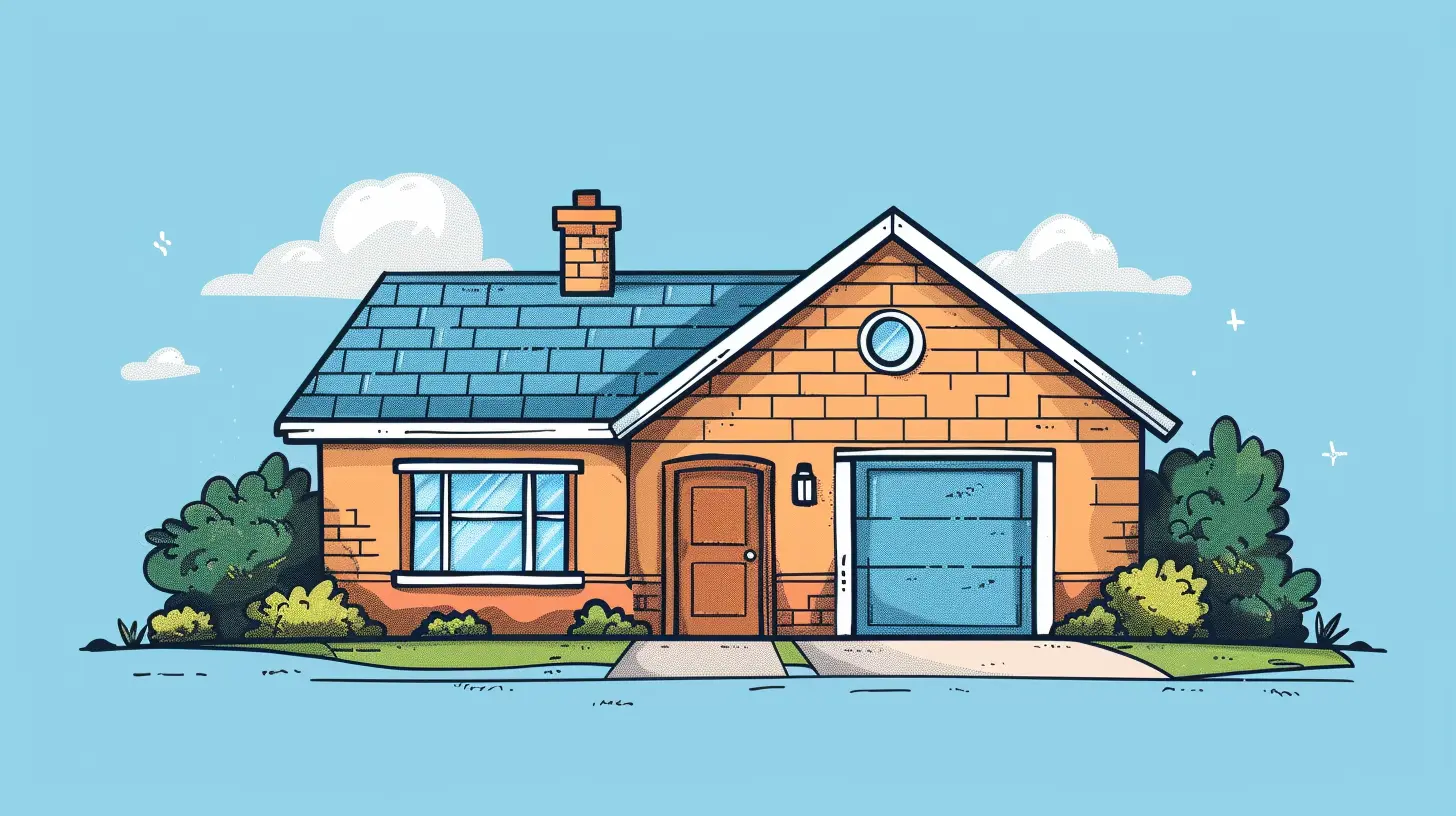How to Handle Lowball Offers When Selling Your Home
11 September 2025
Selling your home is a huge step—you’ve spent time, money, and energy getting your place ready for the market. You’ve staged the living room just right, updated the kitchen, planted fresh flowers by the front door, and worded your listing to perfection. Everything feels ready...
Then it happens.
A buyer sends in an offer—way below asking price. Not just a bit under, but ridiculously low, like they're offering to buy your BMW with couch change.
So, how do you handle lowball offers without losing your cool or scaring away the buyer completely?
Buckle in—let’s walk through the best strategies for dealing with lowball offers like a pro, so you can stay confident, keep the upper hand, and get top dollar for your home.
What Exactly Is a Lowball Offer?
Before we roll up our sleeves, let’s define what we’re actually dealing with.A lowball offer is a bid from a potential buyer that significantly undercuts the listing price—sometimes 10%, 20%, or even more below your asking price. These offers can feel like a slap in the face, especially when you’ve put heart and soul (and dollars!) into your home.
But hey, deep breaths. Not all lowball offers are made to offend. Some buyers are just testing the waters to see how flexible you are. Others genuinely believe that the market’s in their favor.
The key here? Don't take it personally. It’s business.
Step 1: Don’t Panic—and Definitely Don’t Get Offended
Let’s be real—getting a lowball offer can be gut-wrenching. But before you fire off an emotionally-charged "Thanks, but no thanks" reply, hit pause.Remember, emotion and negotiation do not mix well. You’re selling a product now, not your memories. That buyer didn’t sit on your front porch with family every summer—they’re looking at numbers, not nostalgia.
Pro Tip: Keep your poker face. Responding calmly and professionally keeps the door open for negotiation, even if the initial offer was ridiculous.
Step 2: Know Your Home’s True Market Value
Okay, let’s get analytical for a minute.Do you know what your home is realistically worth today? Not what you hope it’s worth or what you paid for it five years ago.
You need a real, data-backed estimate.
That means:
- Reviewing comparable sales (known as “comps”) in your area
- Checking how long similar homes stayed on the market
- Looking at seasonal trends
- Factoring in updates and upgrades
A great real estate agent can dig up the data and help you price right—and if your home is already priced spot-on, it gives you power to push back on low offers with confidence.
Step 3: Look at the Offer’s Full Picture
Low price? Yeah, that stings. But don’t just stare at the number in the offer letter. Take a beat to look at the full package.Ask yourself:
- Is the buyer offering cash? (No bank = faster, smoother close)
- Are they willing to waive contingencies?
- Do they need a quick or flexible closing date?
- Are they avoiding asking for repairs or concessions?
Sometimes, a lower price comes with fewer hoops to jump through. If it saves you time, money, or hassle, it might just be worth a closer look.
Step 4: Respond Strategically—Don’t Shut the Door
So, you've received that lowball and you've sized it up. Now what?Always counter. Unless the offer is truly insulting (we’re talking 50% off the asking price), respond with a counteroffer. This shows you're serious, but not desperate.
Here’s how to rise above the lowball like a champ:
- Counter close to your asking price if you know you're priced competitively.
- Sweeten the deal with incentives—offer to include appliances, a home warranty, or a credit toward closing costs.
- Set a deadline for your counteroffer to create a sense of urgency.
Remember: Negotiation is a dance. Give a little, stand your ground a little. Stay classy.
Step 5: Ask for Feedback
Now this might sound odd, but stick with me.If the offer is unusually low, ask the buyer’s agent (or the buyer, if they’re unrepresented) for some feedback.
Why?
Because understanding why they offered what they did could give you leverage. Maybe there’s something they didn’t like about the house, or maybe they think your price doesn’t match the comps.
You’re not just fishing for validation here—you’re gathering intel that can help you revise your marketing strategy or address red flags before other buyers bring it up.
Step 6: Keep Your Emotions in Check
This is worth repeating.When you get an offer that feels like an insult, it’s easy to get defensive. Especially if your home holds sentimental value. But letting emotions dictate your decisions can cost you real money.
Think like a business owner here. The goal is to make the sale while maximizing your net profit and minimizing the risk. Don’t give someone else’s low number the power to derail your momentum.
Use it as fuel instead.
Step 7: Know When to Walk Away
Not all offers are worth entertaining.If a buyer isn’t willing to budge, and you know your price is fair and backed by comps, feel free to hold your ground. The market (and your agent) will tell you if your expectations are off-base.
Sometimes, no deal is better than a bad deal.
At the end of the day, serious buyers will show up ready to negotiate. Don’t give your house away just because someone tried to lowball you.
Step 8: Use Lowball Offers as Leverage
Here’s a sneaky little secret: lowball offers can sometimes help you snag stronger offers.How? Because having any offer gives you a stronger position in marketing. Imagine telling other prospective buyers, “We’ve already received interest.”
This lights a little fire under the fence-sitters. Nobody wants to lose out, and urgency is a powerful motivator.
Step 9: Keep the Conversation Going
Even if the buyer seems stingy upfront, remember—sometimes their first offer isn’t their final offer. Negotiations can stretch over days or even weeks. Keep the dialogue open, stay polite, and keep your agent in the loop.Buying a home is also an emotional process for the buyer. They may fall in love and be willing to increase their offer once they realize competition is heating up or that you’re not budging.
Step 10: Have a Pricing Strategy to Prevent Lowballs
Let’s rewind for a second—sometimes, lowball offers are a symptom of a bigger issue: unrealistic pricing.If your home’s been sitting on the market for months with little interest, buyers may see it as stale and assume you’re desperate. Cue the lowballing.
So how can you combat this?
- Price realistically from the start—buyers (and their agents) are savvy.
- Use psychological pricing—$399,000 looks way cheaper than $400,000.
- Review feedback and traffic to your listing regularly.
A smart pricing strategy prevents bottom feeders from giving you a headache in the first place.
Final Thoughts
Getting a lowball offer can feel like a punch to the gut. But if you keep your head, stay strategic, and remember your end goal (selling your home at a fair price!), you’ll be just fine.Buyers may be testing your resolve, but you’re in control. Respond with confidence, not emotion. Keep lines of communication open, and use every offer—no matter how low—as an opportunity to move the deal forward.
Because at the end of the day? It only takes ONE solid offer to change everything.
Quick Recap: How to Handle Lowball Offers Like a Boss
- Stay cool—don’t take it personally- Know your market and your home’s true value
- Evaluate the full offer, not just the dollar sign
- Always counteroffer strategically
- Ask questions and get feedback
- Don’t be afraid to walk away
- Use lowball offers for leverage
- Adjust pricing or presentation if needed
Lowball offers happen—but they don’t have to kill your sale. Handle them like a champ, and you’ll come out smarter, stronger, and probably with a better deal on the table.
all images in this post were generated using AI tools
Category:
Home Selling TipsAuthor:

Cynthia Wilkins
Discussion
rate this article
1 comments
Allegra Montgomery
Lowball offers can sting! Stay patient, keep communication open, and remember, every offer is a starting point!
September 18, 2025 at 3:30 AM

Cynthia Wilkins
Thank you for your insightful comment! Staying patient and maintaining open communication is key to navigating the negotiation process effectively.


